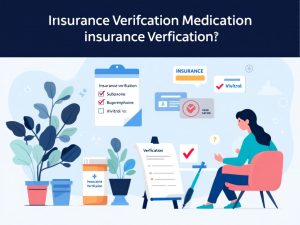If you ever find yourself or a loved one struggling with an immediate behavioral health crisis involving a child, it is natural to feel overwhelmed. Child comprehensive crisis services can be the pivotal resource that helps you navigate urgent concerns effectively, providing a stable foundation for your child’s ongoing well-being. By offering timely evaluation, tailored interventions, and a supportive environment, these services help children return to a safer, healthier path. At Epic Health Partners, we believe that creating a nurturing space for children in crisis is essential to empowering families and instilling hope for long-term healing.
Below, you will discover what child comprehensive crisis services entail, why thorough assessment is crucial, how families and guardians can best collaborate in treatment, and, most importantly, why you should consider Epic Health Partners for holistic outpatient behavioral health, psychiatric, and substance-use care. From day treatment options to crisis stabilization units, our focus is always on individualized plans, compassionate support, and evidence-based strategies.
Understand child comprehensive crisis services
Child comprehensive crisis services refer to an array of interventions and programs specifically designed to address urgent mental or emotional health challenges faced by children. When a child experiences a mental health or behavioral crisis, prompt and professional care cannot be overstated. These services commonly include:
- 24/7 telephone hotlines to connect you with immediate guidance
- Emergency evaluations and triage in specialized crisis departments
- Short-term stabilization in dedicated inpatient or intensive units
- Coordination of outpatient therapy plans, psychiatric evaluations, and aftercare
The Youth Crisis Stabilization Unit (YCSU) at Nationwide Children’s Hospital is one real-world example. This 16-bed facility provides brief, intensive mental health treatment that usually spans three to five days (Nationwide Children’s Hospital). During that short stay, a child’s critical needs are evaluated, and parents or guardians are encouraged to participate in every stage of the process. This family engagement allows you to remain fully informed and ensures you can provide the emotional support your child needs.
By seeking professional child comprehensive crisis services, you are giving your child access to a team of experts who can adjust treatment approaches according to their psychological, developmental, and emotional needs. These individualized plans help children build healthier coping mechanisms while giving you the insights and tools necessary for ongoing support at home.
Explore crisis interventions and assessments
A comprehensive psychiatric or behavioral health assessment lays the groundwork for targeted, effective care. According to the Ohio Administrative Code, such assessments must thoroughly evaluate the presenting problem, any risk factors, treatment history, and potential substance use (Ohio Administrative Code). This holistic approach ensures your child’s team has a clear understanding of various influences and can shape an intervention plan best suited to their needs.
Why a prompt assessment matters
When your child is in crisis, a timely evaluation is paramount. The process may begin in an emergency department or specialized behavioral health crisis center. During this assessment, staff members often look at:
- The immediate safety risks and concerns
- The severity of any psychiatric symptoms or likelihood of harm
- Co-occurring factors, such as possible substance misuse or developmental disorders
- Past treatment attempts and response to them
From there, professionals can determine if your child requires acute stabilization or if an outpatient approach is more appropriate. Clear discharge planning will follow, including referrals to outpatient support through psychiatric evaluation outpatient, telehealth therapy services, or other specialized programs.
Crisis hotlines and suicide crisis intervention
Sometimes, the simplest first step during a crisis is picking up the phone. Behavioral health hotlines that operate round the clock allow you to connect with trained professionals who specialize in crisis intervention. They can provide suicide prevention guidance, de-escalation techniques, and immediate referrals if inpatient care or more intensive programs are necessary. If you are in urgent need of crisis intervention for a child, do not hesitate to reach out to local hotlines or consult specialized programs like suicide crisis intervention. Timely action can make a tremendous difference in helping a child stabilize and preventing further escalation.
Embrace family support and involvement
Family involvement is an essential component of successful crisis resolution. In many crisis units dedicated to child and adolescent care, parents and guardians are not only encouraged but expected to take an active role. This collaborative method reinforces vital support for the child. For instance, the Youth Crisis Stabilization Unit mentioned at Nationwide Children’s Hospital allows parents or guardians to stay overnight, if necessary, to ensure maximum comfort for both the child and the family (Nationwide Children’s Hospital).
By actively participating in your child’s treatment sessions, you can:
- Convey important details about past behavioral patterns
- Share your observations of stressors and triggers
- Vocalize your perspectives on what therapeutic methods might best resonate with your child’s personality
- Reinforce at home any coping strategies introduced during treatment
As part of this supportive environment, family counseling mental health services bolster the bond among relatives, ensuring that each member learns how best to communicate, set healthy boundaries, and show empathy. A united family front often fosters a more stable, nurturing context that supports your child’s long-term wellness.
Discover key treatment options
Child comprehensive crisis services are not limited to conventional inpatient or hospitalization models. Depending on the urgency, complexity, and duration of symptoms, a range of options is available:
Youth crisis stabilization units
A stabilization unit offers short-term intense support. It is designed to address imminent risk factors, de-escalate critical symptoms, and devise a personalized plan for aftercare. Similar to adult models, these units operate under specialized guidelines, ensuring that staff are trained in age-appropriate interventions and trauma-informed practices. Often, children admitted to a crisis stabilization unit remain in a secure space for careful observation and therapy, giving them time and resources to overcome immediate turmoil.
Partial hospitalization and intensive outpatient programs
If your child does not require constant supervision, a partial hospitalization program php or intensive outpatient program iop might be recommended. These are structured treatments that allow your child to receive therapy throughout the day while returning home in the evening. Partial hospitalization involves more hours of treatment per week than an outpatient program, making it a helpful transitional step for those who need robust support but do not require extended stays. By contrast, an intensive outpatient program usually meets several times a week, offering focused therapy, skill development, and group support, all while allowing greater flexibility for school schedules and family routines.
Crisis day treatment
Mental health day treatment services aim to stabilize or improve functioning in a child facing disrupted emotional or behavioral patterns. According to the Ohio Administrative Code, such programs must be goal-oriented, structured, and guided by clear admission and discharge criteria (Ohio Administrative Code). In a day treatment setup, your child will have access to therapy, psychoeducation, and possibly medication management, returning home afterward to implement new skills in a familiar environment.
Outpatient therapy and medication management
For ongoing or less severe crises, outpatient therapy remains a vital cornerstone of comprehensive care. Through child-focused outpatient therapy, your child can learn ways to navigate negative emotions, develop coping mechanisms, and communicate effectively. In cases where mental health conditions are accompanied by physiological or neurological factors, medication management may form part of the treatment plan. A balanced combination of therapy and medication, supervised by child psychiatry professionals, can help your child regain emotional stability.
Consider the benefits of Epic Health Partners
When you or a loved one is ready to seek assistance, determining whom to trust for leading child crisis intervention can be daunting. Epic Health Partners specializes in holistic, evidence-based models, making it an excellent option for families who want comprehensive care that addresses both the immediate crisis and long-term healing. Our approach seamlessly integrates:
- Individualized plans designed around the child’s unique challenges
- Structured programs administered by experienced, compassionate professionals
- Ongoing support in the home and community settings
- Emphasis on continuity of care, from diagnosis to discharge and beyond
- Family-focused collaboration to ensure you are part of every critical decision
We believe that each child deserves tailored care with measurable goals and consistent follow-up. A crisis may be a turning point, but the work of healing and growth extends far beyond the initial emergency. You can rely on our network of specialists to help your child transition from intensive treatments to supportive outpatient services, such as intensive in home services, telepsychiatry services, or child psychiatry services.
Five ways Epic Health Partners supports your child
1. Comprehensive crisis services
We offer a breadth of resources that help stabilize your child’s mental health. From immediate crisis lines to short-term structured care, our comprehensive crisis services ensure that your child receives timely attention. This includes around-the-clock access to trained crisis responders who can guide you through essential next steps.
2. Evidence-based interventions
Your child’s treatment plan incorporates proven therapies such as cognitive behavioral therapy cbt or dialectical behavior therapy dbt. These modalities help children replace destructive thought patterns with healthier ones, develop emotional regulation skills, and practice safer responses to stressors.
3. Family-centered treatment
We integrate programs such as family counseling mental health that encourage every member of your household to play an active role in recovery. You are never on the sidelines. Instead, you become part of a cohesive team that guides your child toward meaningful transformation.
4. Skilled practitioners
Our dedicated staff adhere to best practices, holding relevant qualifications and undergoing regular training to stay updated on the latest child mental health protocols. This continuous learning aligns with the requirement of mental health day treatment service providers to follow structured staff development plans (Ohio Administrative Code).
5. Seamless transition to aftercare
Once the immediate crisis is resolved, we do not simply wave goodbye. Instead, you will receive individualized recommendations ranging from medication assisted treatment mat for co-occurring substance issues to relapse prevention planning for adolescents facing long-standing challenges. Our comprehensive framework ensures each family has a viable plan for continued stability and growth.
Navigate the path ahead
It may seem like there is an endless list of questions when your child faces a mental or behavioral health crisis. You might wonder whether an overnight stay is necessary, who will handle medication if prescribed, or how to handle insurance coverage. Rest assured that Epic Health Partners guides you through each step in clear, concise stages:
-
Initial Assessment: We examine your child’s crisis intensity, mental health care history, and any co-occurring needs such as ADHD or anxiety disorders. This stage often includes a psychiatric evaluation outpatient or referral to specialized units if immediate stabilization is needed.
-
Treatment Planning: Our team collaborates with you to determine the best course of action. Options typically range from day treatment, partial hospitalization, or intensive outpatient program iop to more structured plans like intensive in home services if suitable.
-
Ongoing Therapy: As your child progresses, we adjust treatment modalities to ensure their evolving needs are consistently met. This might involve sessions focusing on social skills, communication, or emotional regulation.
-
Transition and Aftercare: When your child is ready to step down from crisis services, you receive a thorough set of recommendations, including connections to aftercare planning, case management sud if substance use is a concern, or referrals for further specialized care like co occurring disorders treatment.
Where community support fits in
You do not have to navigate your child’s mental health journey alone. Community-based services, such as community stabilization services, can help maintain the progress made during crisis care. These programs often include:
- Ongoing therapy or group therapy mental health to promote peer support
- Collaboration with local schools to ensure relevant accommodations
- Participation in peer support groups that address the unique challenges faced by children with mental health needs
Why you or a loved one should choose Epic Health Partners
When addressing behavioral health, psychiatric, and substance-use care for children, your primary objective is finding the most reliable partner. Epic Health Partners has cultivated a reputation for delivering holistic, thorough, and compassionate services at every stage of the healing process. Here is why families continue to trust us:
- We tailor each plan to the child’s specific developmental stage, personal history, and emotional triggers.
- Our staff are trained in trauma-informed counseling, ensuring minimal re-traumatization and maximum emotional safety.
- We emphasize proven methodologies, such as motivational interviewing therapy or trauma informed counseling, to address complex needs effectively.
- Our continuum of care includes specialized programs for substance use, such as substance use outpatient therapy, maintaining synergy between different services for children with dual diagnoses.
- Family education remains at the forefront, enabling you to reinforce positive changes at home and long after active crisis care concludes.
Moreover, we understand that mental health crises can happen at any time. Our 24/7 support structure means that whether you need emergency help or ongoing therapy services, we are prepared to step in and guide you through each challenge.
Frequently asked questions about child comprehensive crisis services
Below are some of the most commonly asked questions regarding child comprehensive crisis services and how Epic Health Partners can help:
-
What situations typically require child comprehensive crisis services?
These services are designed for any situation where immediate intervention is deemed necessary to ensure the child’s safety or mental well-being. Common causes include severe panic episodes, suicidal ideation, intense behavioral disturbances, and signs of psychosis. If there is any doubt about your child’s safety or mental stability, it is wise to contact crisis services or a mental health professional right away. -
How do I decide between inpatient and outpatient care for my child?
The level of care depends on the severity of your child’s symptoms, their safety risks, and whether they can function productively in a supportive home environment. Inpatient or residential care is typically recommended for children who pose a significant risk of self-harm or harm to others and need round-the-clock supervision. Children requiring a structured approach without continuous monitoring might benefit from our partial hospitalization program php or intensive outpatient program iop. -
Will my child’s privacy be protected during treatment?
Yes, privacy and confidentiality are cornerstones of behavioral health services. While parents or guardians maintain a crucial role in treatment, mental health professionals must also respect your child’s confidentiality rights. Any disclosure of sensitive information is made in the best interest of the child’s safety and well-being, and always within the guidelines of healthcare privacy regulations. -
What if my child has a co-occurring substance abuse issue alongside a mental health crisis?
Co-occurring disorders require a specialized treatment plan that addresses both the mental health component and any substance use concerns. Epic Health Partners offers integrated care solutions, such as dual diagnosis treatment and co occurring disorders treatment, so that all aspects of your child’s well-being are managed cohesively under a single care framework. -
How can I support my child after they are discharged from crisis services?
Discharge does not mark the end of your child’s journey to better mental health. Ongoing therapy, medication adjustments (if applicable), and a stable, supportive home environment remain critical. We may recommend programs like mental health skill building services, family counseling mental health, or other supportive interventions. Consistency in follow-up visits, adherence to prescribed therapies, and collaboration with various healthcare providers will reduce the risk of relapse and strengthen your child’s resilience.
Make the best choice for your child’s future
Child comprehensive crisis services serve as a lifeline during some of the most difficult and overwhelming moments of a family’s life. Identifying a facility and care team that offer empathy, rapid response, and evidence-based treatments is essential to ensuring your child receives the support necessary for lasting recovery. Epic Health Partners strives to meet this standard by providing a continuum of services—from immediate crisis stabilization to outpatient follow-ups—so you can feel confident in the path to healing.
You do not have to face these challenges alone. Our commitment to supporting your child includes individual therapy, group-based interventions, parent engagement, and structured services that keep every stakeholder in the loop. If you think your child could benefit from specialized help, we encourage you to reach out and take that first step. At Epic Health Partners, we believe in fostering a brighter, healthier future for every child and family we serve.
Remember, if your child or any loved one encounters a behavioral or mental health crisis that poses immediate risks, always call 911 or contact an emergency service first. Once safety is assured, we at Epic Health Partners can work collaboratively with you to develop an effective, personalized plan. Together, we can shape a supportive environment that empowers your child to overcome present challenges and build a foundation for lifelong resilience.







